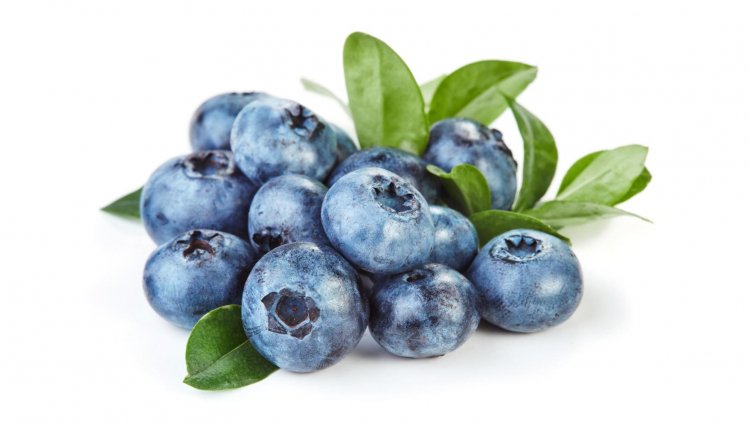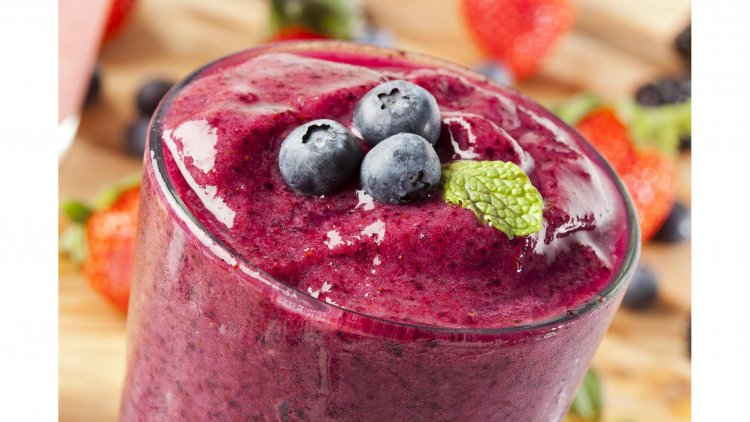The Enigmatic Power of Blueberries: Nature’s Tiny Superheroes
Blueberries, often referred to as "nature's candy," are not just a delightful addition to your breakfast cereal or smoothie. These small, round berries are a powerhouse of nutrients and have earned the title of superfood. In this exploration, we delve into the myriad benefits of blueberries, their fascinating history, cultivation, and the science behind their health-boosting properties.

The Blueberry’s Journey Through History
Blueberries have a rich history that dates back thousands of years. Indigenous peoples of North America were the first to recognize the value of these berries, using them for both nutritional and medicinal purposes. They believed that blueberries were a gift from the Great Spirit, a sentiment echoed by modern nutritionists who praise their health benefits.
The colonization of North America introduced blueberries to European settlers, who quickly adopted them into their diets. However, it wasn’t until the early 20th century that blueberries were domesticated and cultivated on a large scale. Elizabeth White, a pioneering horticulturist, and Dr. Frederick Coville, a botanist with the U.S. Department of Agriculture, were instrumental in developing the first cultivated blueberry varieties.

Cultivating the Perfect Blueberry
Climate and Soil Requirements
Blueberries thrive in acidic soil with a pH between 4.5 and 5.5. They require well-drained soil rich in organic matter, and regions with cold winters are ideal for their growth. The chilling period is crucial for the dormancy and subsequent fruiting of blueberry plants.
Varieties of Blueberries
There are several types of blueberries, including highbush, lowbush, rabbiteye, and half-high. Each variety has its unique characteristics and growing requirements:
- Highbush Blueberries: Common in North America and Europe, these are the most commercially cultivated variety. They are known for their large size and sweet flavor.
- Lowbush Blueberries: Also known as wild blueberries, these are smaller, more intense in flavor, and often used in processed products like jams and juices.
- Rabbiteye Blueberries: Native to the southeastern United States, these berries are more heat-tolerant and drought-resistant.
- Half-high Blueberries: A hybrid of highbush and lowbush, these are suitable for colder climates and offer a balance of size and flavor.
Planting and Care
To cultivate blueberries successfully, it's important to select the right variety for your climate. Planting is typically done in the spring, with bushes spaced about 4-6 feet apart. Regular watering, mulching, and pruning are essential for maintaining healthy plants and maximizing fruit yield.
The Nutritional Brilliance of Blueberries
Vitamin and Mineral Content
Blueberries are packed with essential vitamins and minerals. They are an excellent source of vitamin C, vitamin K, and manganese. Additionally, they contain significant amounts of dietary fiber, which supports digestive health.
Antioxidants and Phytochemicals
One of the standout features of blueberries is their high antioxidant content. These antioxidants, particularly anthocyanins, give blueberries their distinctive color and contribute to numerous health benefits. Blueberries also contain other phytochemicals like flavonoids and polyphenols, which have been shown to reduce oxidative stress and inflammation.
Health Benefits: More Than Just a Superfood
Boosting Brain Health
Studies have shown that regular consumption of blueberries can improve brain function and delay age-related cognitive decline. The antioxidants in blueberries help protect the brain from oxidative stress and improve communication between brain cells. Some research even suggests that blueberries can enhance memory and cognitive performance in both children and older adults.
Supporting Heart Health
Blueberries are beneficial for heart health due to their high content of fiber, antioxidants, and other essential nutrients. Regular consumption of blueberries has been linked to a reduction in bad cholesterol levels, lower blood pressure, and improved arterial function. These factors collectively contribute to a lower risk of cardiovascular diseases.
Enhancing Digestive Health
The fiber content in blueberries promotes healthy digestion by preventing constipation and supporting a healthy gut microbiome. The natural sugars in blueberries are also less likely to cause digestive discomfort compared to other fruits.
Fighting Inflammation
Chronic inflammation is a precursor to many serious health conditions, including heart disease, diabetes, and cancer. The antioxidants in blueberries have powerful anti-inflammatory properties that can help reduce inflammation and protect against these diseases.
Supporting Weight Management
Blueberries are low in calories but high in nutrients, making them an excellent choice for those looking to maintain or lose weight. The fiber in blueberries helps keep you feeling full longer, reducing the likelihood of overeating.


Innovative Uses of Blueberries
Culinary Delights
Blueberries are incredibly versatile in the kitchen. They can be enjoyed fresh, frozen, or dried, and are a popular ingredient in a variety of dishes:
- Breakfast: Add blueberries to yogurt, oatmeal, or pancakes for a nutritious start to the day.
- Baking: Blueberries are a favorite in muffins, cakes, and pies, adding natural sweetness and vibrant color.
- Salads: Fresh blueberries can add a burst of flavor to salads, pairing well with greens, nuts, and cheeses.
- Smoothies: Blend blueberries with other fruits and vegetables for a refreshing and antioxidant-rich drink.
Beyond the Kitchen
The benefits of blueberries extend beyond culinary uses. They are also used in various beauty and skincare products due to their antioxidant properties. Blueberry extracts are believed to help protect the skin from damage, reduce signs of aging, and promote a healthy complexion.
The Science Behind Blueberries’ Superpowers
Antioxidant Mechanisms
The high levels of antioxidants in blueberries, particularly anthocyanins, play a crucial role in neutralizing free radicals in the body. Free radicals are unstable molecules that can cause cellular damage, leading to various diseases and aging. By scavenging these free radicals, the antioxidants in blueberries help protect cells and tissues.
Anti-Inflammatory Effects
Inflammation is the body's natural response to injury or infection, but chronic inflammation can lead to serious health problems. Blueberries contain compounds that inhibit inflammatory pathways, reducing the risk of chronic diseases like heart disease, diabetes, and cancer.
Cardiovascular Benefits
The cardiovascular benefits of blueberries are well-documented. Regular consumption can lead to improvements in blood pressure, cholesterol levels, and overall heart function. The fiber, potassium, folate, vitamin C, vitamin B6, and phytonutrient content in blueberries support heart health by reducing risk factors associated with cardiovascular diseases.
Blueberries in Medicine and Research
Cancer Prevention
Emerging research suggests that blueberries may have cancer-preventive properties. The antioxidants and phytochemicals in blueberries can help prevent the initiation and spread of cancer cells. Studies have shown that blueberry extracts can inhibit the growth of breast, colon, and prostate cancer cells, providing a promising avenue for future cancer therapies.
Diabetes Management
Blueberries may also play a role in managing diabetes. The fiber in blueberries helps regulate blood sugar levels by slowing down the absorption of glucose. Additionally, the anthocyanins in blueberries have been shown to improve insulin sensitivity, which is crucial for managing type 2 diabetes.
Vision Protection
The high levels of vitamin C, vitamin E, and antioxidants in blueberries contribute to eye health. Blueberries can help prevent age-related macular degeneration and cataracts, which are common causes of vision loss in older adults. The antioxidants in blueberries help protect the eyes from oxidative stress and inflammation.

The Role of Blueberries in a Balanced Diet
Daily Recommendations
Incorporating blueberries into your daily diet is simple and beneficial. Nutritionists recommend consuming at least one cup of blueberries per day to reap the full spectrum of health benefits. This can be easily achieved by adding blueberries to your breakfast, snacking on them throughout the day, or incorporating them into various meals.
Combining Blueberries with Other Superfoods
For maximum health benefits, blueberries can be combined with other superfoods. Pairing blueberries with leafy greens, nuts, seeds, and whole grains can enhance the overall nutrient profile of your diet. For example, a salad with spinach, blueberries, walnuts, and quinoa offers a powerful combination of vitamins, minerals, antioxidants, and healthy fats.
Blueberries and Sustainability
Environmental Impact
Blueberries are not only beneficial for health but also have a relatively low environmental impact. They require less water compared to many other crops and can be grown in a variety of climates, making them a sustainable choice for farmers and consumers alike.
Organic vs. Conventional Blueberries
When it comes to choosing between organic and conventional blueberries, both have their pros and cons. Organic blueberries are grown without synthetic pesticides and fertilizers, which can be better for the environment and may have higher antioxidant levels. However, conventional blueberries are often more affordable and widely available. Regardless of the choice, both types of blueberries offer significant health benefits.
Fun Facts About Blueberries
- Blueberries Are Native to North America: They have been enjoyed by indigenous peoples for thousands of years.
- Blueberry Capital of the World: Hammonton, New Jersey, claims this title, producing a significant portion of the world's blueberries.
- Blueberries in Space: NASA has included blueberries in astronauts' space diets due to their high nutrient content.
- The Blueberry Muffin: July 11th is National Blueberry Muffin Day in the United States, celebrating this popular baked good.
Exploring Blueberry-Based Products
Supplements and Extracts
Blueberry supplements and extracts are available for those who want to boost their antioxidant intake without consuming the fruit. These products are often marketed for their potential health benefits, such as improving cognitive function and supporting heart health. However, it's important to choose high-quality supplements and consult with a healthcare professional before adding them to your regimen.
Blueberry-Infused Beverages
Blueberries are a popular ingredient in a variety of beverages, from smoothies and juices to teas and cocktails. These drinks offer a delicious way to enjoy the health benefits of blueberries. For a refreshing treat, try making a blueberry-infused water by adding fresh blueberries and mint to a pitcher of water.
Skincare and Beauty Products
The beauty industry has also embraced blueberries for their antioxidant properties. Blueberry extracts are used in skincare products like creams, serums, and masks to help protect the skin from damage, reduce signs of aging, and improve overall complexion.
The Blueberry’s Cultural Impact
Symbolism and Traditions
Blueberries hold cultural significance in various traditions. In Native American folklore, blueberries were considered a symbol of abundance and were often used in ceremonies and rituals. Today, blueberries are celebrated in festivals around the world, highlighting their importance in both history and modern culture.
Blueberries are much more than just a tasty fruit. They are a nutritional powerhouse with a fascinating history, a wide range of health benefits, and a sustainable footprint. Whether enjoyed fresh, as part of a delicious recipe, or in various products, blueberries truly deserve their status as nature's tiny superheroes.
What's Your Reaction?





















